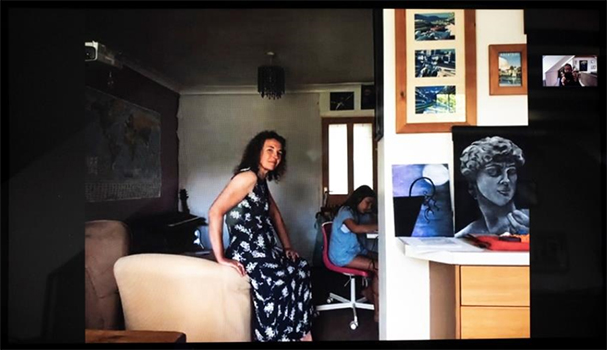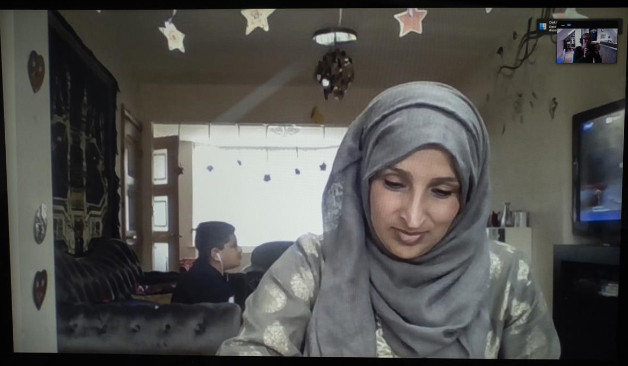Read the full report
COVID-19 and the lockdown have had a disproportionate impact on women, who have been more than twice as likely as men to experience mental health problems, exacerbated by the challenge of working at home while taking on extra responsibilities such as home schooling.
As a result, gender equality gains have quickly dissolved, according to a University of Huddersfield researcher. His findings will be presented to a Parliamentary committee that focuses on inequalities and could influence future legislation designed to contain the pandemic.
Dr James Reid, of the University's Centre for Research in Education and Society, has compiled a report titled Mothers, Covid-19 and Work at Home. It includes the results of Zoom interviews with 12 mothers of school-age children, living across England and with varied backgrounds and ethnicities.
Study Education and Community Studies at Huddersfield
A distinctive feature of the report is that accounts of the interviews are accompanied and illuminated by portraits of the women at home taken by the photographer Fran Monks using video chat software. Children were involved, taking the portraits as photographic assistants.
"I wanted these people's voices to be heard," said Dr Reid. "They are people, not statistics, and I think portraits have a power. You see the person and the context."
Dr Reid's 56-page report includes the statement that mothers are the definition of a "keyworker" in maintaining the health and wellbeing of the family.
"There is however a significant cost to this as mothers have been silenced and disempowered, particularly in relation to a reinforcement of gendered work in the home," he writes.
"The women are acutely aware of the work they do and the historical, societal and familial expectations that burden women. Equality gains were quickly dissolved, indicating the precarious nature of equality in women's independence."
In his report, Dr Reid, whose key areas of research includes maternal and child health, makes a sequence of recommendations.
He urges that mothers should be recognised as keyworkers and should be given a voice in planning and implementation of controls in pandemic management. Other recommendations include:
- Give voice to the unique relationship a woman has with her children in managing lockdown and education at home;
- Recognise mothers' life experience is a valuable educational resource to be utilised;
- Recognise and manage the anxiety that arose during lockdown and be prepared to support mental wellbeing post-lockdown;
- Develop specific support for lone mothers;
- Ensure support services for children with additional needs are maintained.
Dr Reid's project took shape early in the pandemic, when he learned that although older men were more likely to die from COVID-19, there were concerns about the indirect impact on women.
"Women weren't getting the disease at the same rate as men, but they were being impacted in terms of retraction of their rights. Women are likely to have low-paid jobs that are more insecure and there were concerns about the increased housework and care they had to do. They are expected by society to undertake informal caring roles," said Dr Reid.
"Also, there was a retraction of women's services, particularly in relation to maternal and child health. There were reports of women giving birth in car parks, for example, as clinical services began to reduce."








